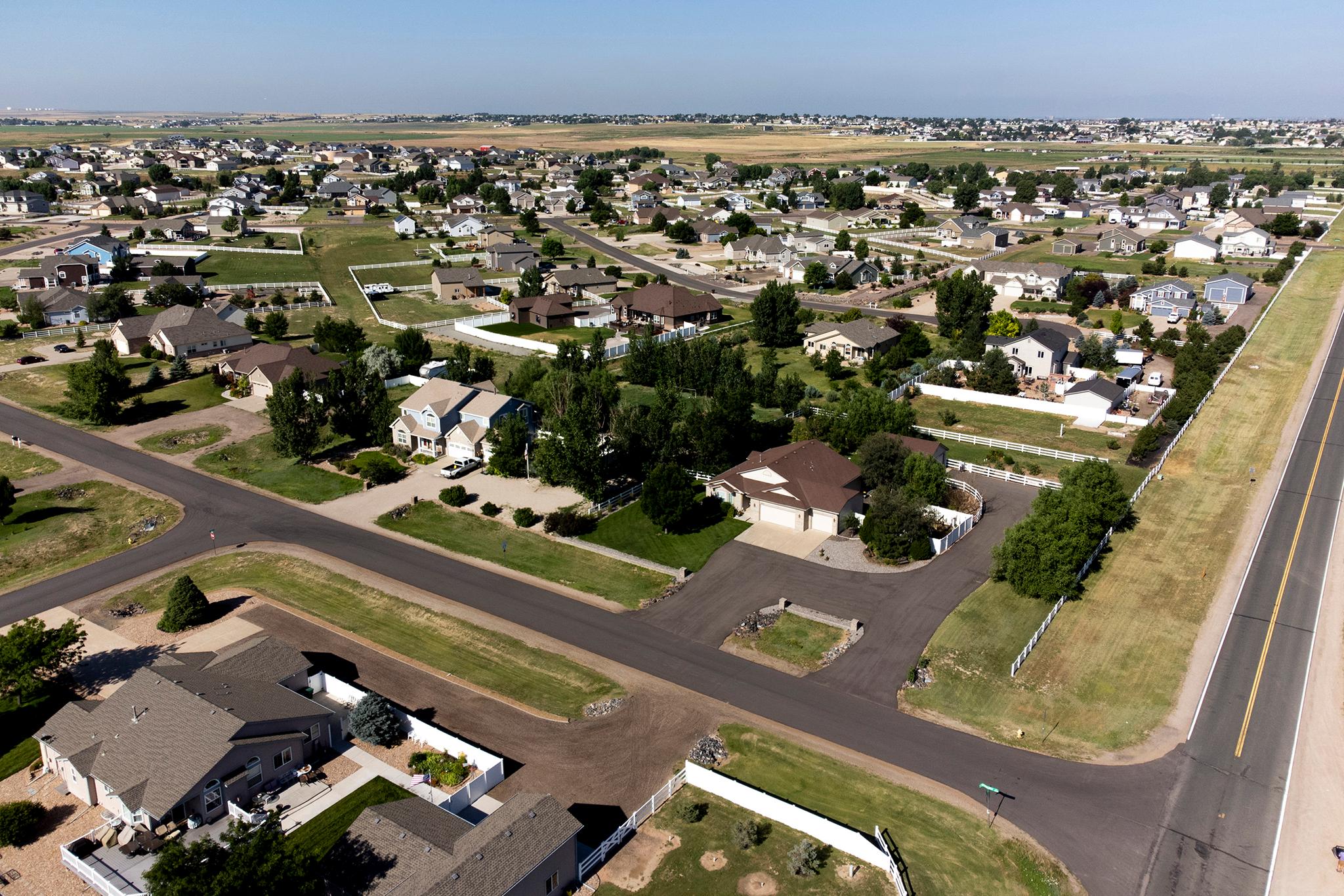
Alisson Soehner’s anxiety dropped the moment she learned Xcel Energy had paused a plan to mix hydrogen into the natural gas delivered to her house in Box Elder Creek Ranch, a 236-home subdivision about 30 miles northeast of Denver.
The decision gives Soehner years to educate her neighbors, who she said remain mostly unaware of the utility’s plan to test the controversial climate strategy in their community near Hudson. The pause also provides extra time to study the potential impact hydrogen could have on pipes and appliances like stoves and furnaces.
“I am not against new technologies and new ideas," Soehner said. “But I think there needs to be adequate research and development before you just broadly apply it.”
Xcel Energy, Colorado’s largest gas and power provider, had initially planned to begin the demonstration in December 2023. Since burning hydrogen doesn’t produce carbon pollution, natural gas utilities have promoted blending projects as a path to cut emissions without abandoning their otherwise profitable pipeline networks — or forcing customers to switch to electric appliances.
However, reporting from CPR News revealed many residents had no idea about the project months before it was set to begin. The company later delayed the plan amid opposition from environmental and consumer advocates, who claimed the project was set to treat customers like guinea pigs in an experiment with dubious climate benefits.
It now appears the entire demonstration project is on the back burner. In a heavily updated plan to cut emissions from its gas system submitted to state utility regulators in February, Xcel Energy is seeking approval to test the hydrogen blending concept at one of its own facilities and with a yet-to-be-named industrial partner. The filings show any plan for Box Elder Creek Ranch would only proceed after “check-in” with state regulators in 2026.
A setback for a business-friendly climate plan
Xcel Energy is considering plans to clean up its gas network due to a 2021 state law, which requires natural gas utilities to cut their climate-warming emissions by 4 percent by 2025 and 22 percent by 2030.
Those requirements have forced the company to reconsider its lucrative gas business. Under the current model for investor-owned utilities, companies collect a profit for shareholders by building infrastructure, which in turn allows the company to attract additional private capital.
In Colorado, Xcel Energy currently operates a natural gas network serving 1.5 million customers through 25,000 miles of transmissions and distribution pipelines. Projects to expand or maintain the network have been a reliable source of revenue for the company, which reported a record $1.77 billion in earnings in 2023.
A climate plan centered around hydrogen blending could allow the company to cut emissions without abandoning the network. In addition, any project to update or retrofit pipelines to accommodate hydrogen could count as new infrastructure investments — and a potential stream of new profits.

The project in Box Elder Creek Ranch was an attempt to prove the strategy is safe and effective. It called for slowly adding hydrogen to the neighborhood’s supply of traditional methane-based natural gas, starting with a 2 percent hydrogen blend and ramping up to a 10 percent hydrogen blend over two years.
The company initially proposed the project as one piece in a set of standard gas infrastructure updates. After state utility regulators suggested the plan requires greater scrutiny, Xcel Energy moved the proposal into its Clean Heat Plan, which lays out the company’s overall strategy to meet the statewide emission targets for natural gas utilities.
Since then, the hydrogen-blending project has struggled to win support. In its revised Clean Heat Plan filed in February, Ray Gardner, an Xcel Energy Vice President for Gas Engineering, told commissioners the company dropped the demonstration project due to “fairly uniform opposition” among state agencies and environmental groups involved in the case.
Each opponent raised a laundry list of concerns about the project. Consumer advocates warned residents couldn’t opt out. Safety advocates argued higher blends of hydrogen have been shown to embrittle steel pipelines, which increases the risk of gas leaks in homes. Environmental advocates noted the company never identified a source for the hydrogen, which means it could have relied on “blue hydrogen” stripped from natural gas rather than carbon-friendly “green hydrogen” coaxed from water.
Many of those critics pushed the company to instead invest in rebates for energy-efficient projects and electric appliances like heat pumps and induction stoves. Since the grid relies on growing supplies of wind and solar, those advocates argued that a shift away from gas would provide a far more cost-effective path to cut emissions.
A 'wait-and-see' alternative plan for hydrogen
While Xcel Energy has delayed the demonstration project, it’s clear the company hasn’t given up on hydrogen altogether.
The updated plan asks commissioners to preserve the $6.3 million budget for the demonstration project. The funding would instead finance a project to test hydrogen blending at an “existing company facility” with “no ‘live’ customers.” A second initiative would seek a commercial partner to use blended hydrogen at an industrial facility.
The new plan details an updated portfolio of projects worth between $580 and $700 million, including a $26 million budget for hydrogen blending in 2027 and 2028.
In his written testimony, Jack Ilhe, a regional vice president of regulatory policy, said the plan is not meant to lock in hydrogen as a “forever” approach to cut emissions. Instead, it meant to cut emissions associated with the gas system during “the period of time it remains in service to customers.”
The Colorado Public Utilities Commission is scheduled to hold official hearings on the Clean Heat Plan starting next week. State regulators must approve a final plan by June.









